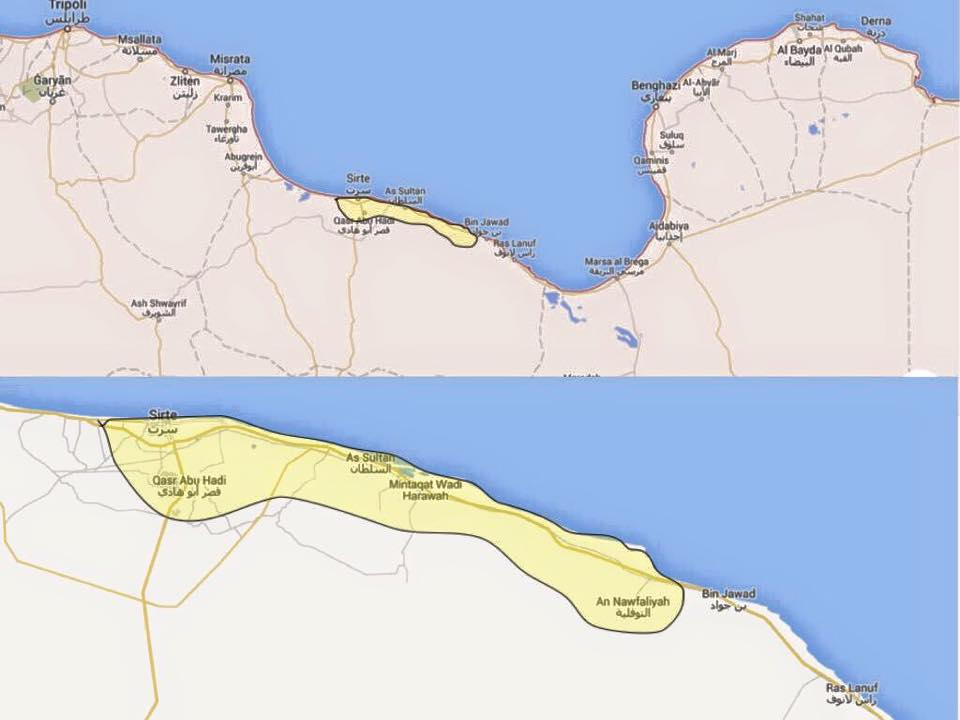By Libya Herald Managing Editor.
Tunis, 1 June 2015:
Speaking at a press conference in Brussels Thursday, UN SRSG Bernardino Leon said that all parties . . .[restrict]must understand that compromise is better than continuing the conflict in Libya.
He added that no side will get 100 percent of what it wants in the negotiations. They must be prepared to concede some things and recognise and bring an end to the conflict – a conflict “that is going nowhere”.
Leon was speaking ahead of the delivery of the draft agreement that the conflicting parties of the UN-sponsored dialogue should receive in the first week of June.
“The country is running out of time,” Leon emphasised. “Libya is on the verge of economic and financial collapse.”
“Libya’s economic collapse is a real possibility. Recently, I met with the governor of the central bank. The situation is very difficult in terms of Libyan finances,” he had said.
Leon’s statements come in a week when Islamic State (IS) has increased its control on the Libyan city of Sirte by taking over its airport
Equally, the Misratan militias (166 Brigade) fighting IS in the Sirte region seem to be at best regrouping or at worse withdrawing as they complain of lack of material and political support from their political leaders in Tripoli, the GNC.
It is also the week during which IS announce that they have launched a hearts and minds media campaign in the beleaguered and IS controlled city of Derna.
IS has launched a public relations operation in Derna by opening a media kiosk in the town. It is reported that it has opened this media kiosk in order to inform the local public about its activities in what it calls its State of Cyrenaica as well as across Libya.
Photos of the launch were reportedly aired on its own Barka TV station announcing the opening of the centre and showed people lining up to use the computers and see the videos at the media kiosk.
IS has also threatened to bomb Tripoli University and neighbouring Tripoli Medical Centre claiming they are centres of debauchery. It has also told residents in the town of Harawa, 70 kilometres east of Sirte, which it attacked twice this month, that they must surrender.
The move by IS in opening a so called media kiosk shows the level of sophistication and prior thought the organization is engaging in. It shows that they are aware of the importance of engaging in a political, social and media battle, as well as a military one.
Their action also sends the message that they should not be looked upon condescendingly and that they deserve serious and mature policy formulation. Their capture of Sirte’s airport, if it were to become long term, could be a stepping stone to another level of terror activity.
The incremental progress by IS in central Libya should send a strong signal to the two main conflicting parties that time is running out. While their negotiations and talks stall and drag on, IS continues to consolidate and creep across central Libya.
While most Western experts on the IS threat in Libya regard their current capabilities as still rather limited, a terror group that gains control of a whole city and its large airport must surely be seen in a new light – as a group that is slowly, but surely growing.
The consolidation and growth of IS in Libya should set alarm bells ringing in European capitals, but more so in both Tripoli and Al-Beida/Tobruk.
The two coalitions must begin to look back and take quick lessons from recent history. They must review events in Afghanistan, Iraq and Syria for implications on the Libyan scene. Once the genie is out of the lamp, once Libya is pushed over the edge, it will be much more difficult to reset to square one.
Libya could so easily fall into a social, political and financial abys for years and decades if the dialogue teams do not grasp this pre Ramadan chance with both hands.
If either side reject what Leon offers, there will be a long break in the process – with or without Leon – well into August as a pause is taken over the fasting month. This would mean that a year would have passed since Tripoli was invaded by militias and the internationally recognized parliament fled into exile to eastern Libya.
It would be one year since nearly every foreign company and foreign worker had fled the country in fear for their security. And it would be a year since all sorts of commercial activity, growth and development has had to come to a halt in Libya.
However, there are signs that war fatigue has set in and that a majority on both side are eager for a face-saving solution. The international community must, therefore, make more concerted efforts to grasp this opportunity. It must equally make more efforts to identify and isolate the minority peace ‘spoilers’ by wedging them away from the more moderate elements in both camps.
The spoilers must be made to understand that there is a positive price for peace and a negative price for war. They must be made aware that those who seek to extenuate the Libyan war will pay that negative price – if they do not compromise now.
The international community must wave a tempting carrot but equally wave a disincentivizing stick at both sides.
Equally, the spread of IS in Libya is still – but only just – containable at the moment. There is no guarantee that that will still be the case in three or six months’ time. Time is ticking for Libya and Europe and psychological timelines must be set by the international community.

It is therefore imperative that all those taking part, directly or indirectly, in the Libya talks grasp what could be the last chance saloon for a peace deal in Libya – while it is still possible. [/restrict]








